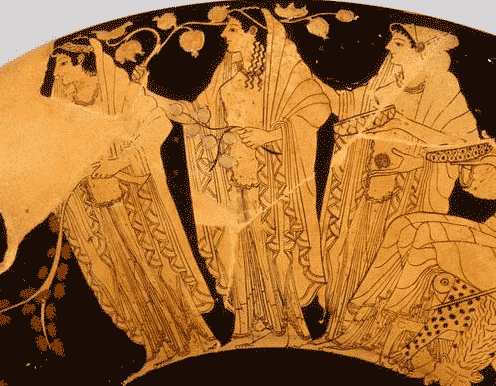return to Home Page
or move on to Goddess Hulda, next chronologically,
or use Her Cyclopedia Index
Horai, The-Seasons.
HOHrI
Alternate meanings: Hours.
[to Whom the ninth day of May, day 129, is dedicated]

return to Home Page
or move on to Goddess Hulda, next chronologically,
or use Her Cyclopedia Index
Horai, The-Seasons.
HOHrI
Alternate meanings: Hours.
[to Whom the ninth day of May, day 129, is dedicated]
